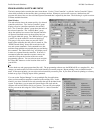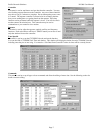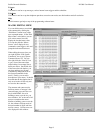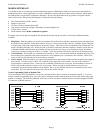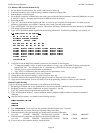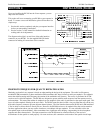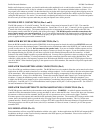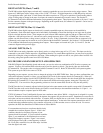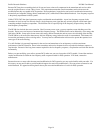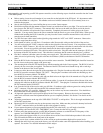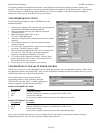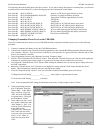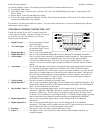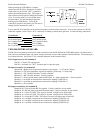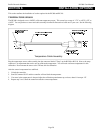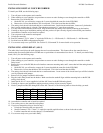
Pacific Research Solutions RI-300e User Manual
Page 14
Because DCS may have extended periods of all ones and zeros, almost all components in the transmitter and receiver chain
must be coupled down to at least 2 Hz or lower. This requirement means that certain transmitters and receivers must be
modified before they are capable of DCS operation. Phase modulators, in particular, need special consideration because they
theoretically are incapable of being directly modulated by DC, unlike direct FM modulation methods. Low frequency response
is the primary requirement for DCS systems.
Unlike CTCSS, DCS the signal spectrum occupies considerable more bandwidth. A poor low frequency response in the
transmitter or receiver may not seriously distort a single frequency tone signal but may seriously degrade a wide band signal
containing multiple frequency components. The distortion risk is especially high if the frequency response delays the wide
band frequency components.
The RI-300 does include data error correction. But if too many errors occur, you may experience some blocking out of the
decoder. Errors can occur because of unwanted low frequency energy. The DCS decoders can be affected by voice energy that
falls below 300 Hz. Some radios do not remove this energy before transmission and can cause voice blocking of the decoder.
The RI-300 has a sub audio filter that removes this low frequency energy before the audio is re-transmitted. This feature will
increase the performance of the receiving radios. You may need to confirm that the radios used to operate the repeater, have
some type of sub audio filtering.
You will find that it is extremely important for the receiver and transmitter to be on frequency to achieve maximum
performance of the DCS function. Errors in the transmitter and receiver frequencies show up at the discriminator output as a
step function. Because of the long time constant required for the low frequency response, a step function can block the decoder
momentarily.
Before you start modifying your radio to operate DCS, make sure your service monitor is DCS capable. Some older monitors
require modifications to obtain the low frequency audio response needed for DCS operation. If in doubt, contact the
manufacturer.
Because there are so many radios that may need modification for DCS operation, we may not be familiar with your radio. For
this reason, we may not be able to provide technical support for some radio modifications. We want to hear constructive and
useful feedback. We appreciate having details about your successful modification of a radio for DCS operation.



